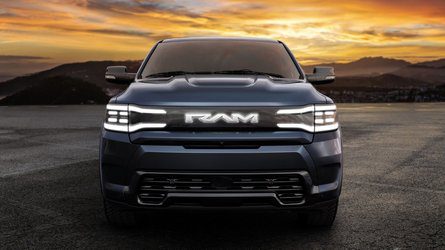Stellantis is getting ready to electrify its lineup, but the automaker is warning that doing so will be costly. Company executives at the New York International Auto Show underlined the need to boost profitability and cut costs in order to fund the shift to EVs. Ram CEO Mike Koval Jr. said that the cost of electrification is expensive, and that protecting current in-market profits has been a challenge due to recent developments like the pandemic, microchip shortage, inflation, and regulatory changes. Stellantis CEO Carlos Tavares added that if the company doesn’t tackle these additional costs, the middle class may not be able to afford EVs, shrinking the market.
To meet its goal of launching more than 25 EVs in the US by 2030, Stellantis plans to debut an electric version of its ProMaster van this year, followed by the electric Ram 1500 REV pickup in 2024. The truck brand is also considering an electric midsize pickup that was shown in concept form to dealers in March. Jeep plans to debut the production versions of the Recon and Wagoneer S electric SUV concepts in 2024, and Dodge will launch its first all-electric muscle car in 2024. Chrysler will step into the EV era in 2025 with a model inspired by the Airflow Concept.
Stellantis is committed to making EVs more accessible to the middle class, but it’s clear that doing so will require a lot of money. The automaker is hoping to offset these costs by protecting current in-market profits and cutting costs wherever possible. Only time will tell if Stellantis can make its ambitious EV plans a reality.
FAQ
Q1: Are electric car batteries recyclable?
A1: Yes, electric car batteries are recyclable.
Q2: Are electric car chargers free?
A2: It depends on the charger and the location. Some electric car chargers are free, while others may require a fee.
Q3: Can electric car batteries be rebuilt?
A3: Yes, electric car batteries can be rebuilt with the right tools and knowledge.









![Porsche and Sakuu Partner to Develop 3D-Printed Battery Gigafactories [Updated] Porsche and Sakuu Partner to Develop 3D-Printed Battery Gigafactories [Updated]](https://eletricmoto.com/wp-content/uploads/2023/02/porsche-and-sakuu-partner-to-develop-3d-printed-battery-gigafactories-updated-120x86.jpg)

